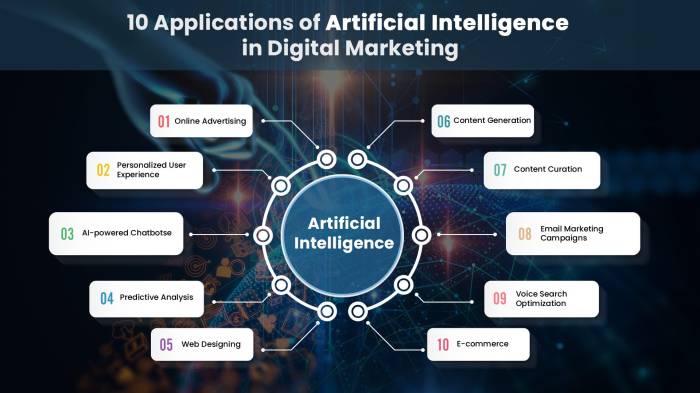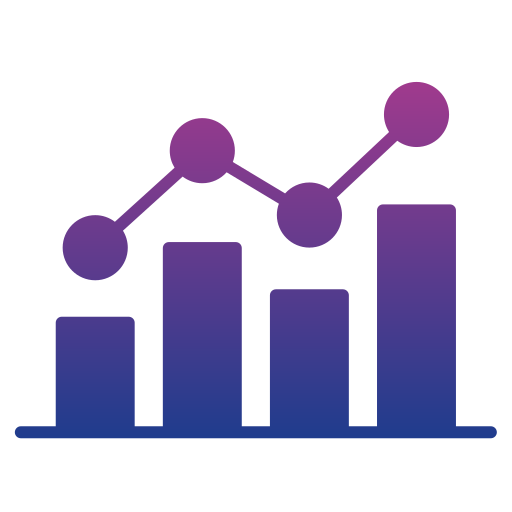AI-driven email campaign optimization sets the stage for this enthralling narrative, offering readers a glimpse into a story that is rich in detail and brimming with originality from the outset. It explores how artificial intelligence is revolutionizing the way businesses engage with their customers through personalized, automated, and data-driven email marketing strategies.
This exploration delves into the intricacies of AI techniques, the benefits of AI-powered email optimization, and the potential challenges and future trends in this dynamic field.
The integration of AI in email marketing is transforming the landscape, enabling businesses to reach their target audiences with greater precision and effectiveness. From crafting compelling subject lines that entice opens to delivering personalized content that resonates with individual preferences, AI empowers marketers to create engaging experiences that drive conversions and foster lasting customer relationships.
This article aims to demystify the world of AI-driven email campaign optimization, providing a comprehensive overview of its key concepts, practical applications, and potential impact on the future of marketing.
Challenges and Considerations for AI-Driven Email Campaign Optimization

While AI offers powerful tools for optimizing email campaigns, it’s crucial to acknowledge the challenges and considerations associated with its implementation. Navigating these aspects ensures ethical and responsible use of AI in email marketing.
Data Privacy and Security
Data privacy and security are paramount in AI-driven email marketing. AI algorithms rely heavily on data to learn and make predictions, raising concerns about the potential misuse or breach of sensitive information.
- Data Collection and Consent:AI systems require vast amounts of data, including customer demographics, email interactions, and purchase history. Obtaining explicit consent from individuals for data collection and use is essential to comply with privacy regulations like GDPR and CCPA.
- Data Anonymization and Encryption:Implementing robust data anonymization and encryption techniques is crucial to protect sensitive customer data from unauthorized access. This ensures that even if a data breach occurs, the information remains confidential.
- Transparency and Control:Transparency in how AI algorithms process and use data is crucial. Customers should have the right to understand how their data is being used and to opt out of data collection or specific AI-driven personalization features.
Ethical Considerations
Ethical considerations are crucial when using AI for email optimization. The potential for bias in AI algorithms and the misuse of AI-powered tools raise significant concerns.
- Bias in AI Algorithms:AI algorithms can inherit biases from the data they are trained on. This can lead to unfair or discriminatory targeting of specific customer segments, reinforcing existing inequalities.
- Misuse of AI for Manipulation:AI can be used to create highly personalized and persuasive emails that could manipulate or exploit customers. It’s essential to use AI ethically and responsibly, focusing on providing value and improving the customer experience.
- Transparency and Explainability:AI decisions should be transparent and explainable. Customers should be able to understand why they are receiving certain emails or offers, promoting trust and accountability.
Cost and Resources, AI-driven email campaign optimization
Implementing AI-driven email optimization strategies can require significant financial and resource investments.
- AI Software and Tools:Investing in AI software and tools for email campaign optimization can be costly. These tools often require subscription fees or licensing agreements.
- Data Infrastructure and Expertise:AI-driven email marketing relies on robust data infrastructure and expertise in data science, machine learning, and AI. Building and maintaining these capabilities can be expensive.
- Training and Maintenance:AI algorithms require ongoing training and maintenance to ensure their accuracy and effectiveness. This involves collecting new data, updating models, and addressing potential biases.
Final Thoughts

In conclusion, AI-driven email campaign optimization offers a powerful arsenal of tools and techniques for businesses seeking to elevate their email marketing strategies. By harnessing the power of AI, marketers can personalize their campaigns, automate processes, gain actionable insights from data, and ultimately deliver exceptional customer experiences.
As AI continues to evolve, its role in email marketing will only become more prominent, shaping the future of customer engagement and driving unprecedented levels of success.
Essential FAQs
What are some popular AI-powered email marketing platforms?
Popular AI-powered email marketing platforms include Mailchimp, HubSpot, Salesforce Marketing Cloud, and ActiveCampaign, among others. These platforms offer a range of AI-driven features for email optimization, including subject line testing, content personalization, and campaign automation.
How can I measure the effectiveness of my AI-driven email campaigns?
Key performance indicators (KPIs) such as open rates, click-through rates, conversion rates, and unsubscribe rates can be used to assess the effectiveness of AI-driven email campaigns. Analyzing these metrics can provide insights into campaign performance and identify areas for improvement.
What are the ethical considerations of using AI in email marketing?
Ethical considerations include ensuring data privacy and security, avoiding bias in AI algorithms, and maintaining transparency in how AI is used to personalize email content. It’s crucial to prioritize ethical practices and responsible AI implementation in email marketing.
